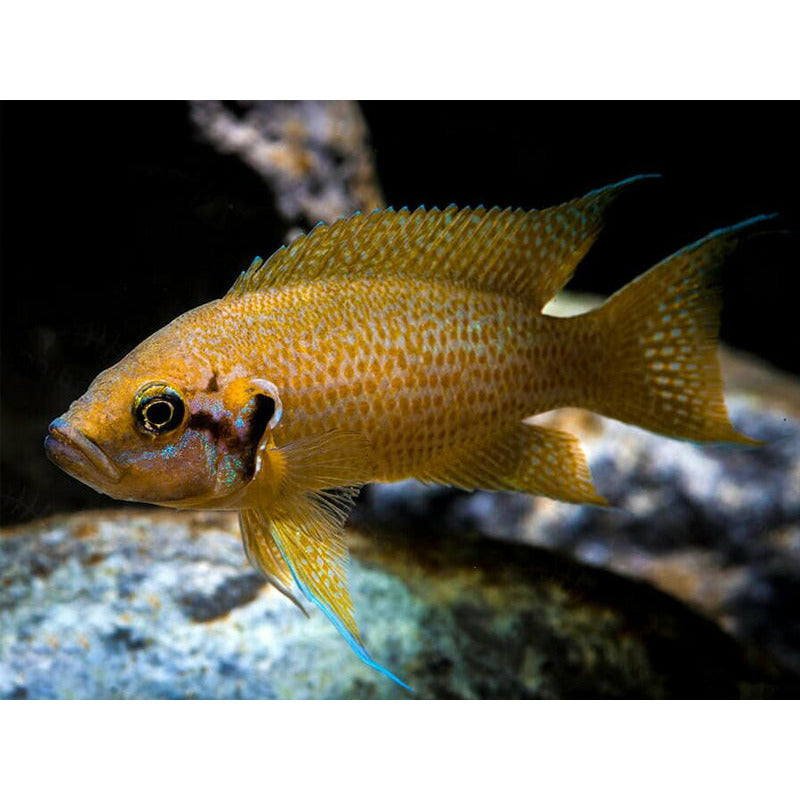- Product
- Helianthus cichlid 1.75"
Helianthus Cichlid 1.75"
Couldn't load pickup availability
Helianthus Cichlid
A somewhat aggressive, territorial fish best maintained in a species tank. However, in large tanks it can be kept with other small to medium-sized Tanganyikan cichlids that occupy different areas within the tank such as Cyprichromis sp. Other rockdwellers such as Julidochromis or Altolamprologus sp. are possibilities if the tank is large enough and sufficient territories are provided. It should never be kept with Mbuna or other boisterous species. It is very aggressive towards conspecifics and only a single pair should be kept unless the tank is very large.
Should be housed in a Lake Tanganyika biotope setup. Fill the tank with piles of rock, arranged to form caves. A sandy substrate is preferable.
Live and frozen foods should comprise a large proportion of the diet. Dried foods can be fed, but use these less often. Vegetable matter, such as spirulina or blanched spinach should also be offered regularly.
Aggressive, territorial fish best maintained in a species tank. However, in large tanks it can be kept with other small to medium-sized Tanganyikan cichlids that occupy different areas within the tank such as Cyprichromis sp. Other rockdwellers such as Julidochromis or Altolamprologus sp. are possibilities if the tank is large enough and sufficient territories are provided. It should never be kept with Mbuna or other boisterous species. It is very aggressive towards conspecifics and only a single pair should be kept unless the tank is very large.
What We Like About This Fish:
- Vivid coloration in mature males
- Peaceful disposition
- Possible to breed in the aquarium
- Compatible with many other species in a spacious tank
- Potential to be a "centrepiece" fish
RECOMMENDED TANK PARAMETERS:
- Temperature: 75° - 81° F (24° - 27° C)
- pH: 7.8 - 9.0
- KH: 10 - 25 KH
- Minimum tank size: 55 gallons for a group
CARE GUIDELINES:
- Diet: Carnivorous. A variety of high-quality dry, frozen, and live meaty foods is necessary for optimal health and coloration.
- Social behaviour: Shoaling. Generally peaceful, but mature males will occupy and defend individual territories from other males.




